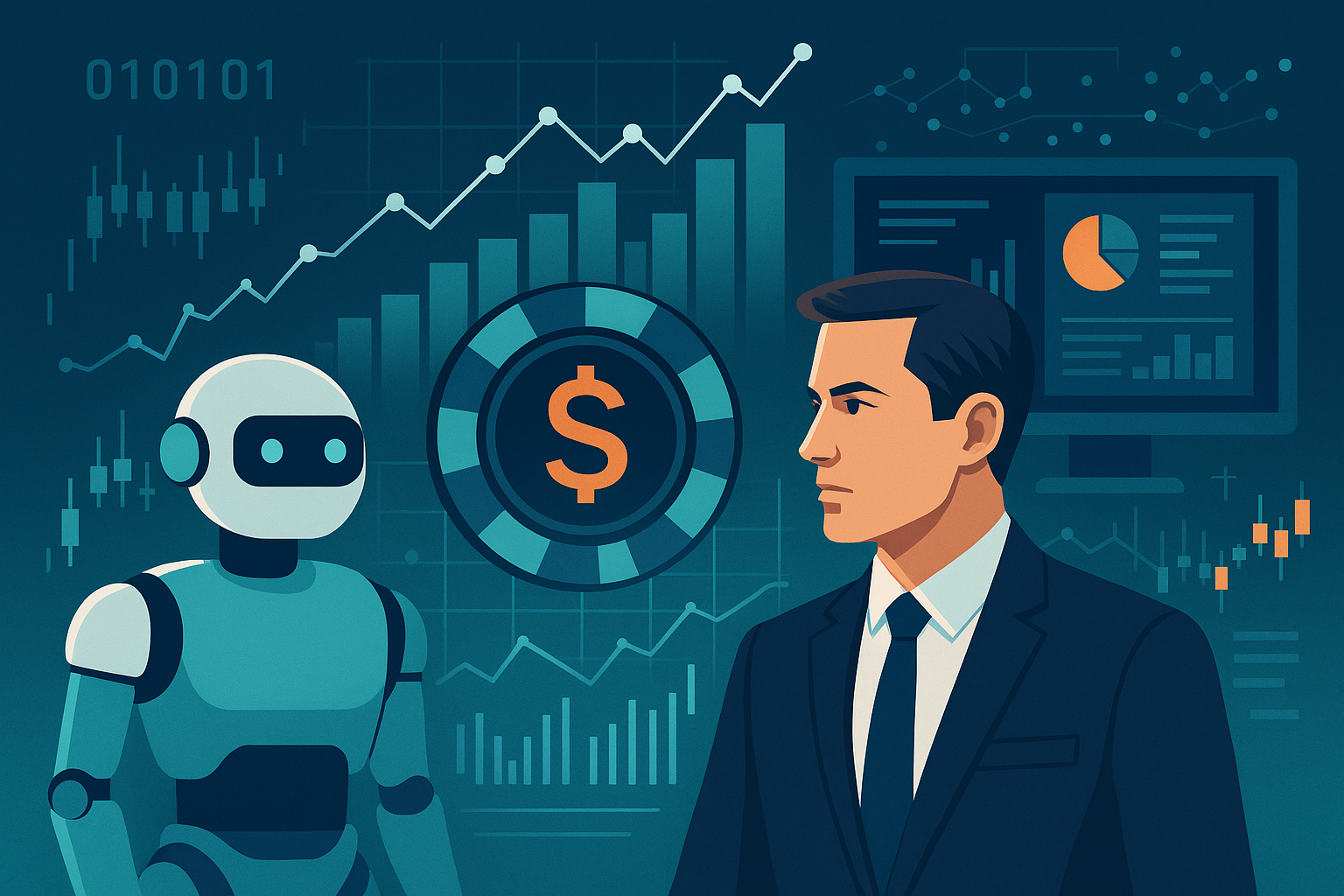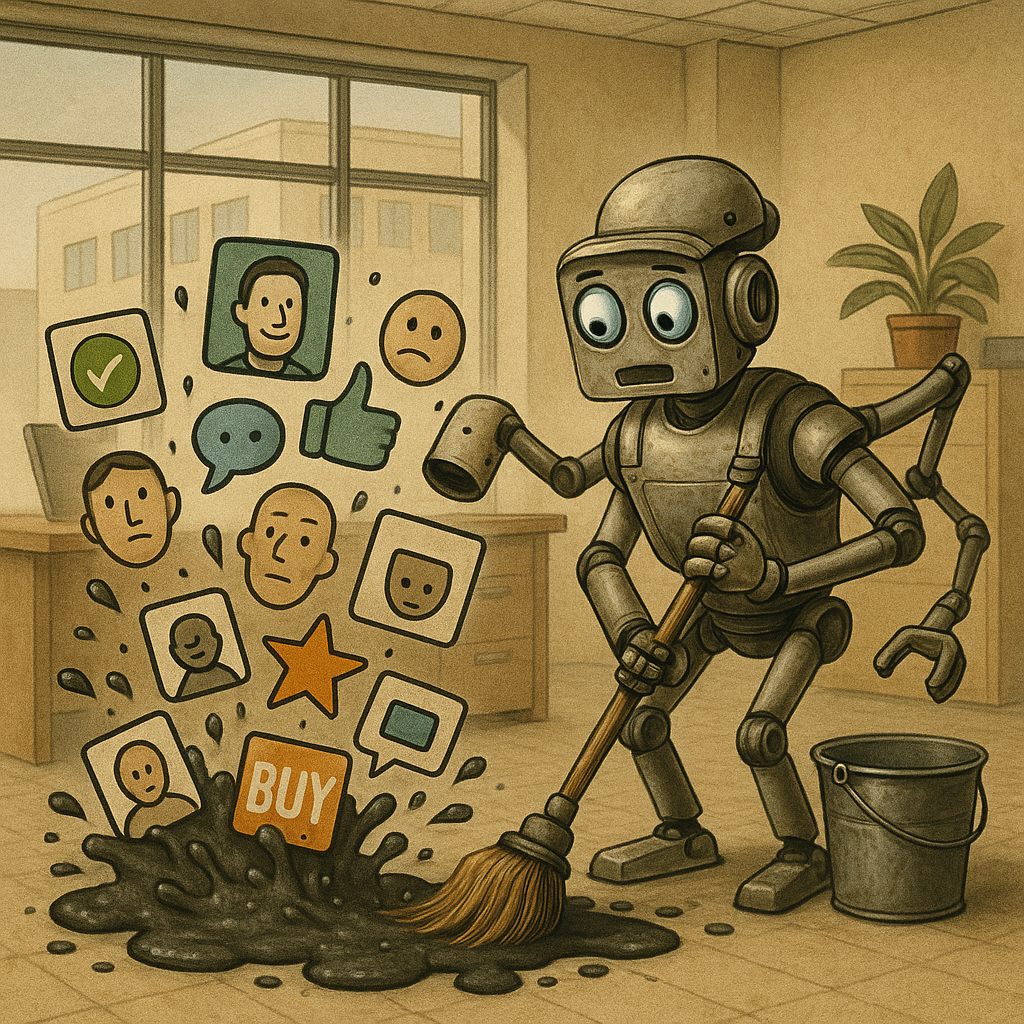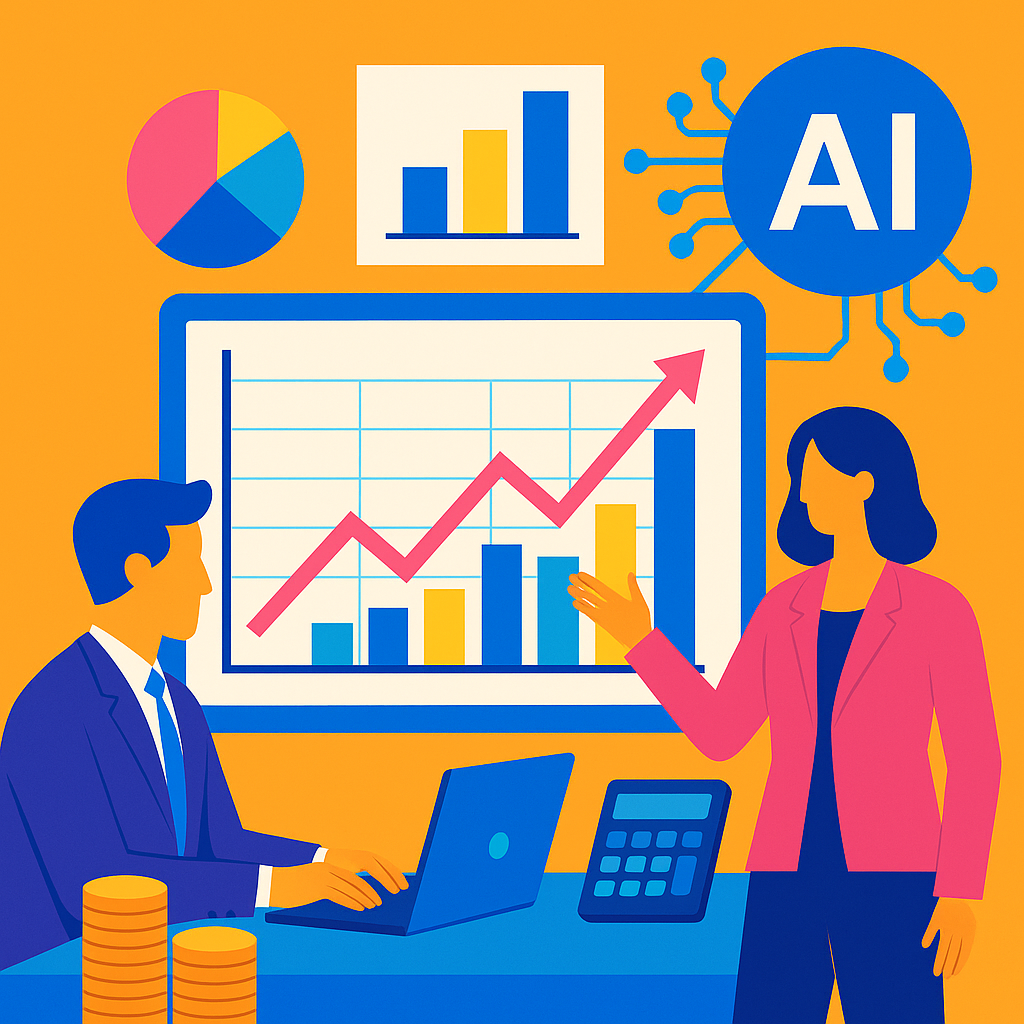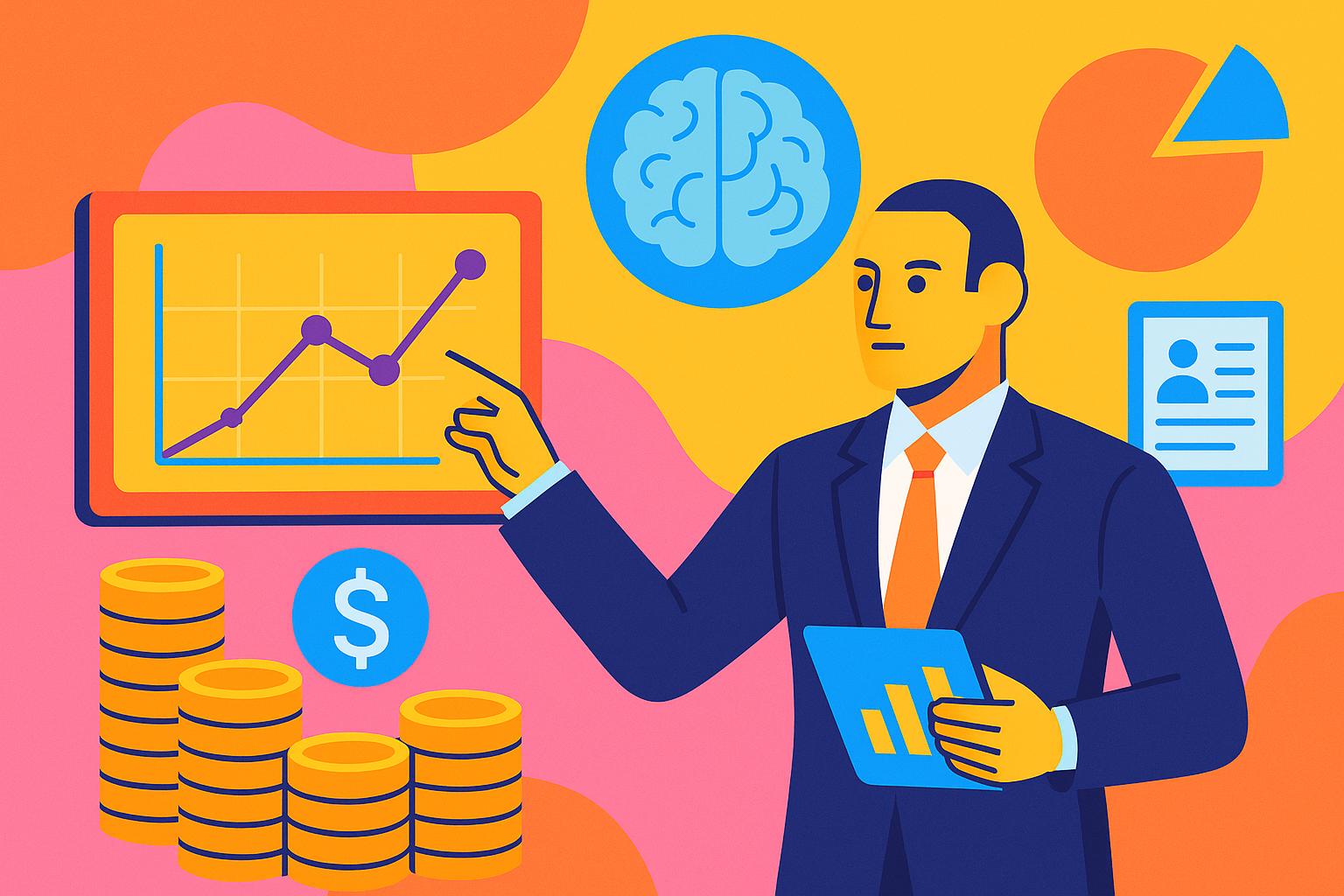Take a look. Take a listen.
Our latest blogs:
OpenAI Releases Open-Source Models & Opens The AI Business Playing Field
OpenAI's latest open-source release fundamentally shifts who controls enterprise AI. For the first time, mid-level executives and business leaders can deploy state-of-the-art AI models tailored to their industries—without vendor lock-in, IT gatekeeping, or safety compromises. This isn't just another AI tool; it's a strategic inflection point that moves AI decisions from the server room to the boardroom. While competitors navigate lengthy procurement processes, early movers can build proprietary AI-amplified processes that create lasting competitive advantages. The AI monopoly just ended. The question is: Will your organization seize this moment?
How Algorithms Learned to Count......and Invest
If investing were a poker game, AI-driven quantitative investing is like having a robotic card-counter by your side, whispering winning probabilities into your ear. But, unlike your local casino pit boss, this behavior is not frowned upon. AI-driven quantitative investing, or "Quant AI," uses advanced algorithms and artificial intelligence to analyze massive financial datasets, predict market trends, and execute quick trades. Within the stock and commodity trading field, Quant AI has shifted from a novelty to an essential tool in every investor's digital arsenal. Let's dive into how executives are steering these AI-robot investors through the financial casino, placing calculated bets and sidestepping dicey gambles with mechanical precision.
AI Will Take Judge Dredd's Place in the Very Near Legal Future
Imagine being able to reference verbatim any legal case in U.S. history. Being able to cite precedent across 200+ year of case law, across every state would be a phenomenal feat for any human lawyer. That’s AI for lawyers in a nutshell. According to a recent study by a team of legal scholars and industry experts specializing in AI-driven transformations within the legal profession, generative AI is poised to significantly transform the legal profession, with new technologies such as Retrieval-Augmented Generation (RAG) and AI reasoning models offering exciting potential.
Behind Every Great AI is an Even Greater Power Bill
Most people just hit the enter button and send their query off to the LLM without even thinking about power. And by power, I mean electricity. AI is rapidly becoming a part of everyday life, deeply integrated into our smartphones, smart assistants, business analytics, and even autonomous driving. The growth in AI adoption is explosive, but behind the seamless interactions with tools like ChatGPT, Google Gemini, and Anthropic Claude, there lies a hidden reality. These technologies consume significant amounts of power beyond other civilian-used technology that has been on the market.
Why Claude's Sub-Agent Launch Matters for Forward-Thinking Executives
Claude Code's new Sub-Agent feature is revolutionizing how organizations approach AI-assisted workflows, enabling businesses to deploy specialized AI mini-agents that dramatically boost productivity and operational excellence. For executives navigating digital transformation, understanding this strategic shift could determine competitive advantage in the AI-driven marketplace.
Trump's AI Action Plan and Its Business Implications
Deregulation, massive infrastructure spending, and new federal contract requirements will reshape competitive dynamics across industries
The White House just released their AI strategy, and it's going to completely reshape how companies operate in this space. We break down which sectors will benefit most from the new deregulation push, what the massive infrastructure investments actually mean for your operations, and how the "political neutrality" requirements could impact your government contracts. This isn't just another policy announcement. It's a fundamental shift that will determine competitive positioning in AI for years to come.
OpenAI's Agents Are Building Tomorrow's Workforce
Imagine telling an AI to "prepare a competitive analysis, draft talking points, and create a board presentation" then walking away while it handles the entire workflow autonomously. OpenAI's new agents don't just research and write, they click, navigate websites, and integrate with your business systems to execute complex projects end-to-end. The intern just became your most capable associate.
Keeping Algorithms on the Straight and Narrow: AI Ethics & Regulations in Finance
While it's not the most exciting topic (depending on whom you ask), but utilizing AI in the Finance sector needs to come with a heavy dose of ethics and regulation. Think of Ethics & Regulation of AI in Finance as your firm's in-house referee and moral compass combined into one. Ethical AI ensures your algorithms remain transparent, unbiased, and accountable. Meanwhile, regulatory compliance sets clear guidelines and boundaries to keep everyone playing by the same rules. An executive in this role spends their days reviewing AI-driven projects (for the non-finance readers think credit decisions or trading models), updating governance frameworks, and generally staying one step ahead of regulatory changes. Successfully handling these responsibilities sets the stage for real scenarios where ethics and regulation become critical, as illustrated in the following examples.
Echo Chambers & 8-Fingered People: Your Survival Guide to the AI Slop Era
The term "AI slop" might sound like something you'd avoid at a questionable cafeteria, but it actually describes the wave of low-quality, mass-produced content generated by artificial intelligence. Think of formulaic blog posts, stock images of people with 8 fingers, and videos literally starring AI-based avatars. If you picture the internet as a garden, AI slop would be the stink bug that's giving the garden a funky smell.
How AI is Transforming Corporate Financial Planning & Forecasting Without the Excel Headaches
Corporate financial planning and forecasting is the strategic art of figuring out where the money should go, where it might come from, and what might hit the fan along the way. It’s what keeps the CFO from waking up at 2 a.m. in a cold sweat and helps everyone from the CEO to ops managers know whether that next big hire, office expansion, or M&A deal is actually a good idea. Day-to-day, FP&A (Financial Planning & Analysis) executives live in a world of rolling forecasts, variance reports, budget reconciliations, and "just one more" version of the model. It's a constant game of "what if?" mixed with "what now?" and a dab of “can we even afford this?”
How Context Engineering Makes AI Work for You
Think about context engineering like producing a great movie. You don't just throw actors in front of the camera and expect magic. You need a great script, great actors, good direction, and careful editing. Similarly, context engineering involves carefully preparing what goes into an LLM so you get exactly what you want out of it. High-quality context ensures your LLMs responses are clear, accurate, and aligned with your goals. If you skimp on the prep work, you’ll end up with LLM outputs that feel as disappointing as a poorly made film.
The Smartest Wealth Assistant Money Can Buy
Wealth management is like having a personal concierge for your money: advisors help clients grow, protect, and transfer wealth across generations. It covers everything from investment strategy and retirement planning to tax optimization and estate considerations. Now, imagine adding AI to the mix. Instead of flipping through spreadsheets or relying on gut feel, AI can scan massive datasets to spot emerging trends, flag compliance issues, or generate tailored client summaries. For executives, that means faster decision-making, better client engagement, and more runway to think strategically rather than chase paperwork. Think of AI as a behind-the-scenes personal financial superhero in a suit.
OpenAI's $10 Million Consulting Gamble: What This Means for Your Business
When I heard OpenAI was charging at least $10 million for AI consulting services, my first thought was: "Finally, someone's acknowledging that implementing AI isn't just about buying software."
Here's what caught my attention. OpenAI just announced they're building teams of engineers who work directly with customers to customize AI models using their proprietary data. Think of it like having a master chef come to your restaurant, learn your signature recipes, and then teach your kitchen staff how to create dishes that perfectly match your brand.
Stop Freaking Out About AI Taking Your Job and Start Upskilling Now
Everyday it seems like there's a new AI-based tool that makes headlines as the next job killer for (insert your industry of choice). You keep hearing about your white-collar job becoming obsolete, maybe as soon as tomorrow. If the thought of AI stealing your job keeps you awake at night, you're not alone. A report from the United Nations Conference on Trade and Development (UNCTAD) warns that 40% of jobs worldwide could be impacted by AI over the next decade, with many facing direct disruption or significant change due to automation . Another alarming forecast from PwC, McKinsey, and the World Economic Forum predicts that up to 60% of jobs could be significantly impacted by 2050. It’s understandable why panic is setting in. But I also hear about some many people just sitting around, not trying to grow their skills. It seems like the opposite of what you should be doing when a powerful new technology shows-up.
How AI Is Giving Investment Banking an Upgrade
There was a time when “AI in investment banking” sounded like something you’d hear over a bad Bluetooth connection at a fintech conference. Fast forward to today, and AI isn’t just crashing the party; it’s at the head of the table, asking for the deal deck. Whether you’re considering your next big M&A or just trying to find where you left your 12th version of the pitchbook, AI is quietly becoming the partner no one saw coming.
How AI is Making Risk Management a Little Less Risky to Manage
Remember when financial risk management felt a bit like rolling dice and hoping they landed in your favor? Well, those days are long gone, thank goodness. Welcome to the AI-powered era of risk management, where financial institutions are trading gut feelings for algorithmic precision. But don't worry; your robot overlords aren't here just yet. They're simply making life easier (and way less risky) for finance execs everywhere. Let’s dive into how AI is transforming risk management in finance, from theoretical geekery to practical magic.
The AI Value Gap: Why Most Organizations Are Leaving Billions on the Table
McKinsey's latest research on 1,500 executives reveals a stunning disconnect: while AI adoption has exploded across organizations, fewer than one in five are capturing meaningful business value from their investments. Despite billions in spending and countless pilot programs, most companies are essentially running expensive experiments disguised as transformation initiatives. This comprehensive analysis exposes the four critical imperatives that separate AI winners from the pack—and why the window for competitive advantage is rapidly closing.
The Death of SEO and the Rise of GEO
For decades, SEO has been at the heart of digital marketing. Webmasters meticulously optimized websites for keywords, backlinks, and PageRank, aiming for coveted positions atop search results. But this traditional strategy appears to be fading. Recently, brands have experienced noticeable declines in referrals from traditional search engines, accompanied by a rise in visibility from AI-driven platforms. Welcome to the age of Generative Engine Optimization (GEO).
OpenAI's Updates Put Projects and CustomGPT Builds on Steroids
In a whirlwind of recent announcements, OpenAI quietly turned ChatGPT from a clever chatbot into a “build‑your‑own‑agent” workbench. Projects have evolved into smart workspaces that remember your files, tone, and past chats; Custom GPTs can now draw on every model in the catalog; and new connectors let you pull insights straight from Google Drive, GitHub, and more—without writing a single line of code. It’s the clearest sign yet that DIY AI agents are going mainstream, and the most exciting releases could still be ahead.
How AI is Becoming the Stock Market Crystal Ball
Predicting market trends has always been part data, part intuition, and part hoping the Fed Chair isn’t about to go off-script at Jackson Hole. But thanks to AI, we’re seeing less guesswork and more grounded forecasting. Artificial intelligence is now being used to make sense of massive amounts of economic, consumer, and geopolitical data, offering more accurate and timely market predictions. In this article, we’ll explore how AI is already being used to stay ahead of market shifts, look at some real-world examples and share five prompts you can try to bring some forecasting finesse to your workday.
Subscribe to the DemystifAI Digest
Our newsletter aims to keep you at the forefront of the AI revolution by unraveling the rapid advancements in AI and translating them into actionable insights for your business.




















